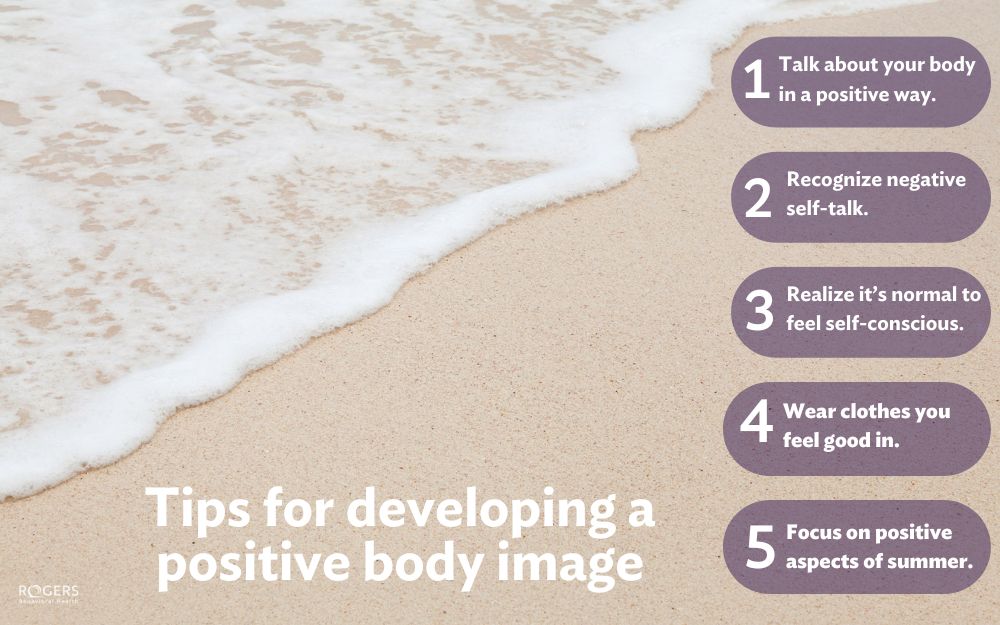By Jody A. Langford, MD, medical director, psychiatrist, Eating Disorder Recovery Center for Adolescents, child and adolescent inpatient Eating Disorder Recovery at Rogers Behavioral Health
What is body image?
As the temperature rises, so does the anticipation for sunshine, beach days, and barbeques. However, summer can also heighten body image concerns.
Body image is defined as how a person thinks, perceives, feels, and behaves regarding one’s physical appearance. The National Eating Disorders Association says a negative body image involves a distorted perception of one’s shape and physical appearance. Body dissatisfaction is one of the best-known contributors to the development of eating disorders.
Body image issues
Struggles with body image are not gender dependent.
A number of factors can influence a person’s body image. Sometimes a negative body image is driven by a person’s temperament. Some people are more critical of themselves than others and tend to compare themselves to others more frequently. Experiencing negative comments about one’s body can have a profound negative impact on body image. Additionally, social media can certainly play a part. It makes it easy to compare oneself to others in ways that can be extremely harmful. I think with adolescents and the summer break, they can focus on wanting to go back to school looking different if they’re dissatisfied with their bodies.
5 strategies for how to create body positivity
Five strategies for how a person can develop a positive body image:
- Talk about your body, and other people’s bodies, in an affirming way.
- Recognize any negative self-talk about your body.
- Realize it’s normal, and part of the human experience, to sometimes feel self-conscious about one’s body.
- Wear clothes you feel good in and do activities that work well for your body.
- Focus on the positive aspects of summer activities and food options.
What should you do if you’re concerned about a child?
If you have concerns about your child’s eating habits, non-judgmentally say something like, “I’m noticing that you don’t seem to be eating lunch anymore.” Try to find out what’s going on. You could ask whether it’s a matter of not being hungry or not having enough time to make a meal, then offer some options. Try to diffuse the situation and make room for dialogue.
Also, talk with your pediatrician to find out whether your concerns are valid. Oftentimes, kids don’t grow in a linear way. They fill out, then grow taller, so it might be best not to saying anything to your child. It’s also helpful to talk about the benefits of foods they’re not eating, like vegetables, which is common, and how they can improve your child’s overall health.
Body image and eating disorders
Find out more about eating disorders, including symptoms and treatment at Rogers here. If you think you or a loved one may have an eating disorder, you can take our short quiz, or call 800-767-4411 for a free, confidential screening.


